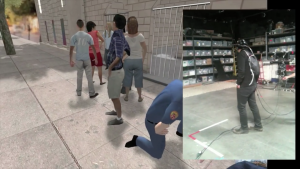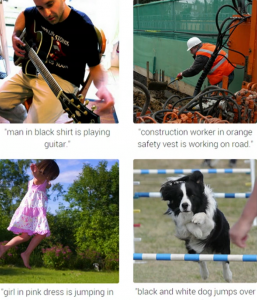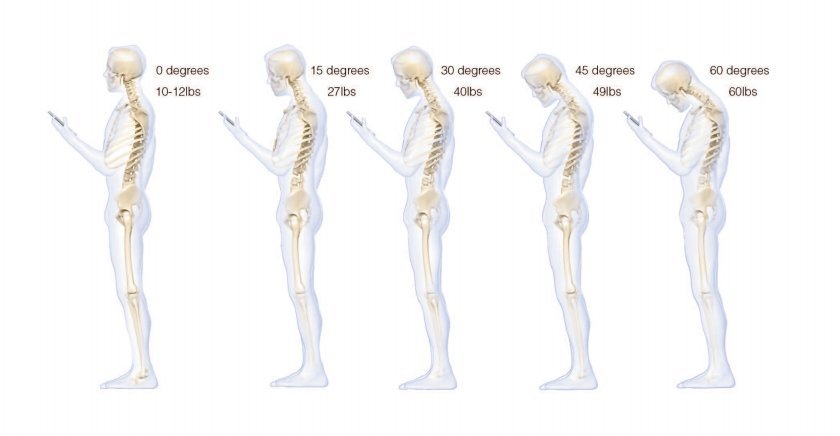 This is a big question with a multitude of answers. NPR’s new program/podcast Invisibilia answers with three stories. The first one looks at the big picture with questions about artificial intelligence, wearable computers, and the possibilities for human/computer co-evolution. The other two stories look at specific, personal, right-now examples of human character changes as a result of digital technology.
This is a big question with a multitude of answers. NPR’s new program/podcast Invisibilia answers with three stories. The first one looks at the big picture with questions about artificial intelligence, wearable computers, and the possibilities for human/computer co-evolution. The other two stories look at specific, personal, right-now examples of human character changes as a result of digital technology.
npr.org/programs/invisibilia/385792677/our-computers-ourselves

 For decades researchers have experimented with machine learning—software that can improve with experience without being reprogrammed. That research has paid off in a number of applications, including the intelligent search engines that we use every day. But recent breakthroughs in a field called deep learning are likely to bring radical transformations to our lives very soon. This TED Talk by Jeremy Howard explains the technology and touches on a few applications and implications. Spoiler: there’s good news and bad news….
For decades researchers have experimented with machine learning—software that can improve with experience without being reprogrammed. That research has paid off in a number of applications, including the intelligent search engines that we use every day. But recent breakthroughs in a field called deep learning are likely to bring radical transformations to our lives very soon. This TED Talk by Jeremy Howard explains the technology and touches on a few applications and implications. Spoiler: there’s good news and bad news….
[ted id=2155 lang=en]
 Malware makers are always coming up with new ways to exploit innocent computer users. One relatively new breed of malware, ransomware, encrypts files, making them effectively unusable, unless their owners pay ransom to the perpetrators. This short NPR story focuses on this very real threat.
Malware makers are always coming up with new ways to exploit innocent computer users. One relatively new breed of malware, ransomware, encrypts files, making them effectively unusable, unless their owners pay ransom to the perpetrators. This short NPR story focuses on this very real threat.The digital technology explosion of the last decade has produced many new threats to our privacy, including some unexpected ones. In this short TED talk, Catherine Crump explains how the automatic license plate scanners used by police might have disastrous ramifications for law-abiding citizens.
[ted id=2149]
 It’s fairly well known that sitting at a desk staring at a computer all day can be hazardous to your spine (see page 86 of Digital Planet), but new research suggests that standing with your smart phone can also cause problems. This short Huffington Post piece explains why.
It’s fairly well known that sitting at a desk staring at a computer all day can be hazardous to your spine (see page 86 of Digital Planet), but new research suggests that standing with your smart phone can also cause problems. This short Huffington Post piece explains why.
 War and technology have been intertwined throughout human history. Today’s digital technology is creating a whole new form of war that’s all but invisible to most of us. In his book @War, Shane Harris describes the war that’s waged on the Internet and describes the relationship between government and the tech industry that makes that war possible. In this NPR Fresh Air program he’s interviewed by Terry Gross.
War and technology have been intertwined throughout human history. Today’s digital technology is creating a whole new form of war that’s all but invisible to most of us. In his book @War, Shane Harris describes the war that’s waged on the Internet and describes the relationship between government and the tech industry that makes that war possible. In this NPR Fresh Air program he’s interviewed by Terry Gross.
The name “3D printer” doesn’t come close to evoking the transformative potential of this rapidly emerging technology. In this intriguing TED Talk, Avi Reichental describes how 3D printers are revolutionizing medicine, manufacturing, and more. How does it change our world when complexity is free?
[ted id=2026 lang=en]
Nicholas Negroponte has been predicting—and creating—the future for decades. In this TED talk he walks us through those decades, pointing out what the future looked like from many vantage points in the past, and ending with a startling prediction. Given his track record for correctly predicting the future, do you think he’s right on this one?
[ted id=2043 lang=en]
ted.com/talks/nicholas_negroponte_a_30_year_history_of_the_future